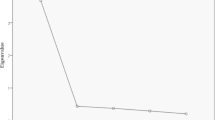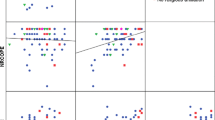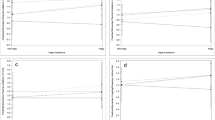Abstract
Peptic ulcer occurs due to the erosive action of the acid gastric juice upon an area of mucous membrane that may be presumed to have become devitalized in some way and thus to have lost its normal powers of resistance to its own enzymes. Being a psychosomatic illness various psychological factors have been found to be associated with the occurrence and/or persistence of the disease. The present study deals with the nature of anger, life event stress, conflict and defense mechanism of 30 peptic ulcer patients and 30 unaffected individuals. MANOVA and further analysis through ANOVA were computed to statistically analyse the data. The results of the study revealed that peptic ulcer patients had lower trait anger, angry temperament, anger-out and defensive function; and higher anger-in and life event stress than the individuals in the comparative group. Findings also revealed differences in needs, conflicts and defenses between the two groups. Thus it can be concluded that peptic ulcer patients may have a tendency to suppress their anger, experience significantly greater life event stress, experience a significant conflict of autonomy versus compliance along with having low defensive functioning.
Similar content being viewed by others
References
Alexander, F., et al. (1934). The influence of psychological factors upon gastro-intestinal disturbances: A symposium. The Psychoanalytic Quarterly, 3, 501.
Alexander, F., French, T. M., & Pollack, G. H. (1968). Psychosomatic specificity: experimental study and results. Chicago: University of Chicago Press.
Barnett, E. A. (1979). Unlock your mind and be free—A practical approach to hypnotherapy. Singapore: Dominie Press Ltd.
Bellak, L. (1989). Ego Function Assessment (Modified). Scale Ego Function Assessment (EFA): a manual. Larchmont: Consulting Psychological Services.
Bellak, L., Chassan, J. B., Gediman, H. K., & Hurvich, M. (1973). Ego function assessment of analytic psychotherapy combined with drug therapy. The Journal of Nervous and Mental Disease, 157(6), 465–469.
Bingham, J. R. (1960). Precipitating factors in peptic ulcer. Canadian Medical Association Journal, 83(5), 205.
Boerma, C. (2007). Physiology of anger. https://healthmad.com/mental-health/physiology-of-anger/
Choung, R.S., & Talley, N.J. (2008). Epidemiology and clinical presentation of stress-related peptic damage and chronic peptic ulcer. Current Molecular Medicine 8(4), 253–257.
Cryer, B., & Mahaffey, K. (2014). Gastrointestinal ulcers, role of aspirin, and clinical outcomes: Pathobiology, diagnosis, and treatment. Journal of Multidisciplinary Healthcare, 7, 137–146. https://doi.org/10.2147/JMDH.S54324.
Esplugues, J. V., Barrachina, M. D., Beltrán, B., Calatayud, S., Whittle, B. J. R., & Moncada, S. (1996). Inhibition of gastric acid secretion by stress: A protective reflex mediated by cerebral nitric oxide. Proceedings of the National Academy of Sciences, 93, 14839–14844. https://doi.org/10.1073/pnas.93.25.14839.
Feldman, M., Walker, P., Green, J. I., & Weingarden, K. (1986). Life event stress and psychological factors in men with peptic ulcer disease. A multidimensional case controlled study. Gastroenterology, 91(6), 1370–1379.
Gasbarrini, G., Pretolani, S., Bonvicini, F., Gatto, M. R. A., Tonelli, E., Megraud, F., et al. (1995). A population-based study of Helicobacter pylori infection in a European country: The San-Marino Study. Relations with gastrointestinal-diseases. Gut, 36(6), 838–844.
Gerhardstein, K., Griffin, P., & Hormes, J. (2011). Personality disorders lead to risky behavior, treatment obstacles. HIV Clinician, 23, 6–7.
Ghosh, S. N. (1999). Life events stress in patients with bronchial asthma and peptic ulcer. In D. M. Pestonjee, U. Pareek, & R. Agarwal (Eds.), Studies in stress and its management (pp. 219–226). New Delhi: Oxford & IBH Co.
Goldberg, D. P. (1988). A user's guide to the General Health questionnaire. Windsor.
Gouina, J. P., & Kiecolt-Glaser, J. K. (2011). The impact of psychological stress on wound healing: Methods and mechanisms. Immunology and Allergy Clinics of North America, 31, 81–93.
Guo, G., Jia, K. R., Shi, Y., et al. (2009). Psychological stress enhances the colonization of the stomach by Helicobacter pylori in the BALB/c mouse. American Journal of Physiology. Gastrointestinal and Liver Physiology, 12, 478–485.
Gutef, E. H. (2016). Prevalence of helicobacter pylori infection with peptic ulcer diseases in Iraqi patients. European Journal of Pharmaceutical and Medical Research, 3(4), 479–482.
Hendricks, L., Bore, S., Aslinia, D., & Morriss, G. (2013). The effects of anger on the brain and body. National Forum Journal of Counseling and Addiction, 2(1), 2–5.
Kaplan, H. I. (1995). Gastrointestinal disorders. In H. I. Kaplan & B. J. Sadock (Eds.), Comprehensive textbook of psychiatry (6th ed., pp. 1121–1132). Baltimore: Williams and Wilkins.
Kapp, F. T., Rosenbaum, M., & Romano, J. (1947). Psychological factors in men with peptic ulcer. The American Journal of Psychiatry, 103, 700–704.
Khuroo, M. S., Mahajan, R., Zargar, S. A., Javid, G., & Munshi, S. (1989). Prevalence of peptic ulcer in India: An endoscopic and epidemiological study in urban Kashmir. Gut, 30(7), 930–934.
Kumar, R., Rastogi, C. K., & Nigam, P. (1996). A study of life events in cases of peptic ulcer and controls with special reference to their temporal relationship to the onset of illness. Indian Journal of Clinical Psychology, 23(2), 129–134.
Levenstein, S. (1999). Peptic ulcer at the end of the 20th century: Biological and psychological risk factors. Canadian Journal of Gastroenterology and Hepatology, 13(9), 753–759.
Levenstein, S. (2000). The very model of a modern etiology: A biopsychosocial view of peptic ulcer. Psychosomatic Medicine, 62(2), 176–185.
Levenstein, S., Rosenstock, S., Jacobsen, R. K., & Jorgensen, T. (2015). Psychological stress increases risk for peptic ulcer, regardless of Helicobacter pylori infection or use of nonsteroidal anti-inflammatory drugs. Clinical Gastroenterology and Hepatology, 13(3), 498–506.
Levesque, R. (2007). SPSS programming and data management: A guide for SPSS and SAS users (4th ed.). Chicago: SPSS Inc.
Marshall, B. J., & Warren, J. R. (1984). Unidentified curved bacilli in the stomach of patients with gastritis and peptic ulceration. Lancet, 323(8390), 1311–1315.
Murray, H. A. (1973). Thematic apperception test. Thematic apperception test manual. Cambridge: Harvard University Press.
Overmier, J. B., & Murison, R. (2013). Restoring psychology's role in peptic ulcer. Applied Psychology: Health and Well-Being, 5(1), 5–27.
Prabhu, V., & Shivani, A. (2014). An overview of history, pathogenesis and treatment of perforated peptic ulcer disease with evaluation of prognostic scoring in adults. Annals of Medical and Health Science Research, 4, 22–29.
Sattar, Y., Bseiso, A., Patel, N. B., Larios, D. A., et al. (2018). Review of psychological and behavioral factors in peptic ulcer disease. International Journal of Advanced Research, 6(2), 1899–1908.
Schuster, J. P., Limosin, F., Levenstein, S., & Le Strat, Y. (2010). Association between peptic ulcer and personality disorders in a nationally representative US sample. Psychosomatic Medicine, 72, 941–946.
Selye, H. (1956). The stress of life (pp. xvi–324). New York: McGraw-Hill.
Selye, H. (1976). The stress concept. Canadian Medical Association Journal, 115(8), 718.
Sharma, S., Ghosh, S. N., & Sharma, M. (2004). Life events stress, emotional vital signs and peptic ulcer. Psychological Studies—University of Calicut, 49, 167–176.
Sharma, S., Ghosh, S. N., & Speilberger, C. D. (1995). Anxiety, anger expression and chronic gastric ulcer. Psychological Studies, 40(3), 187–191.
Siddique, R. A. H. (2014). Prevalence of peptic ulcer disease among the patients with abdominal pain attending the Department Of Medicine in Dhaka Medical College Hospital, Bangladesh. IOSR Journal of Dental and Medical Sciences, 13(1), 05–20.
Singh, G., Kaur, D., & Kaur, H. (1983). Presumptive Stressful Life Events Scale (PSLES)—A new stressful life event scale for use in India. Indian Journal of Psychiatry, 26(2), 107–114.
Speilberger, C. D. (1996). State—trait anger expression inventory state. Trait anger expression inventory professional manual. Odessa: Psychological Assessment Resources.
Stojanovich, L., & Marisavljevich, D. (2008). Stress as a trigger of autoimmune disease. Autoimmunity Reviews, 7, 209–213.
Sunnen, G. V. (2010). Hypnosis in psychosomatic medicine. Ozonics International (pp. 1–9). https://www.triroc.com/sunnen/topics/psychosomatic.htm
Szasz, T. S., Levin, E., Kirsner, J. B., & Palmer, W. L. (1947). The role of hostility in the pathogenesis of peptic ulcer: Theoretical considerations with the report of a case. Psychosomatic Medicine, 9(5), 331–336.
Taché, Y., Martinez, V., Million, M., & Wang, L. (2001). Stress and the gastrointestinal tract III. Stress-related alterations of gut motor function: role of brain corticotropin-releasing factor receptors. American Journal of Physiology: Gastrointestinal and Liver Physiology, 280, 173–177.
Tang, J. H., Liu, N. J., Cheng, H. T., Lee, C. S., Chu, Y. Y., Sung, K. F., et al. (2009). Endoscopic diagnosis of Helicobacter pylori infection by rapid urease testin bleeding peptic ulcers: A prospective case-control study. Journal of Clinical Gastroenterology, 43(2), 133–139.
Tovey, F. I., & Hobsley, M. (1999). Is Helicobacter pylori the primary cause of duodenal ulceration? Journal of Gastroenterology and Hepatology, 14(11), 1053–1056.
Uyanikoğlu, A., Danalioğlu, A., Akyüz, F., et al. (2012). Etiological factors of duodenal and gastric ulcers. Turkish Journal of Gastroenterology, 23, 99–103. https://doi.org/10.4318/tjg.2012.0435.
Wolff, H. G., & Wolf, S. W. (1943). Human gastric function: An experimental study of a man and his stomach. New York: Oxford University Press.
Author information
Authors and Affiliations
Corresponding author
Additional information
Publisher's Note
Springer Nature remains neutral with regard to jurisdictional claims in published maps and institutional affiliations.
Rights and permissions
About this article
Cite this article
Chaudhury, P., Banerjee, U. Nature of Anger, Life Event Stress, Conflict and Defense Mechanism Among Individuals Having Peptic Ulcer: A Comparative Study. Psychol Stud 65, 285–295 (2020). https://doi.org/10.1007/s12646-020-00559-7
Received:
Accepted:
Published:
Issue Date:
DOI: https://doi.org/10.1007/s12646-020-00559-7




